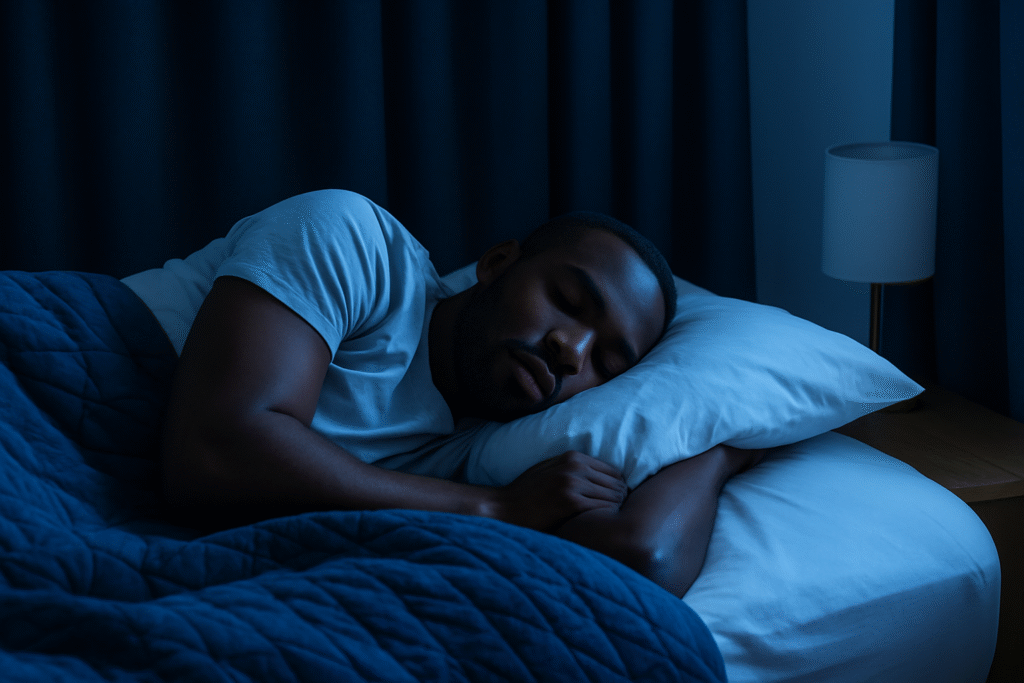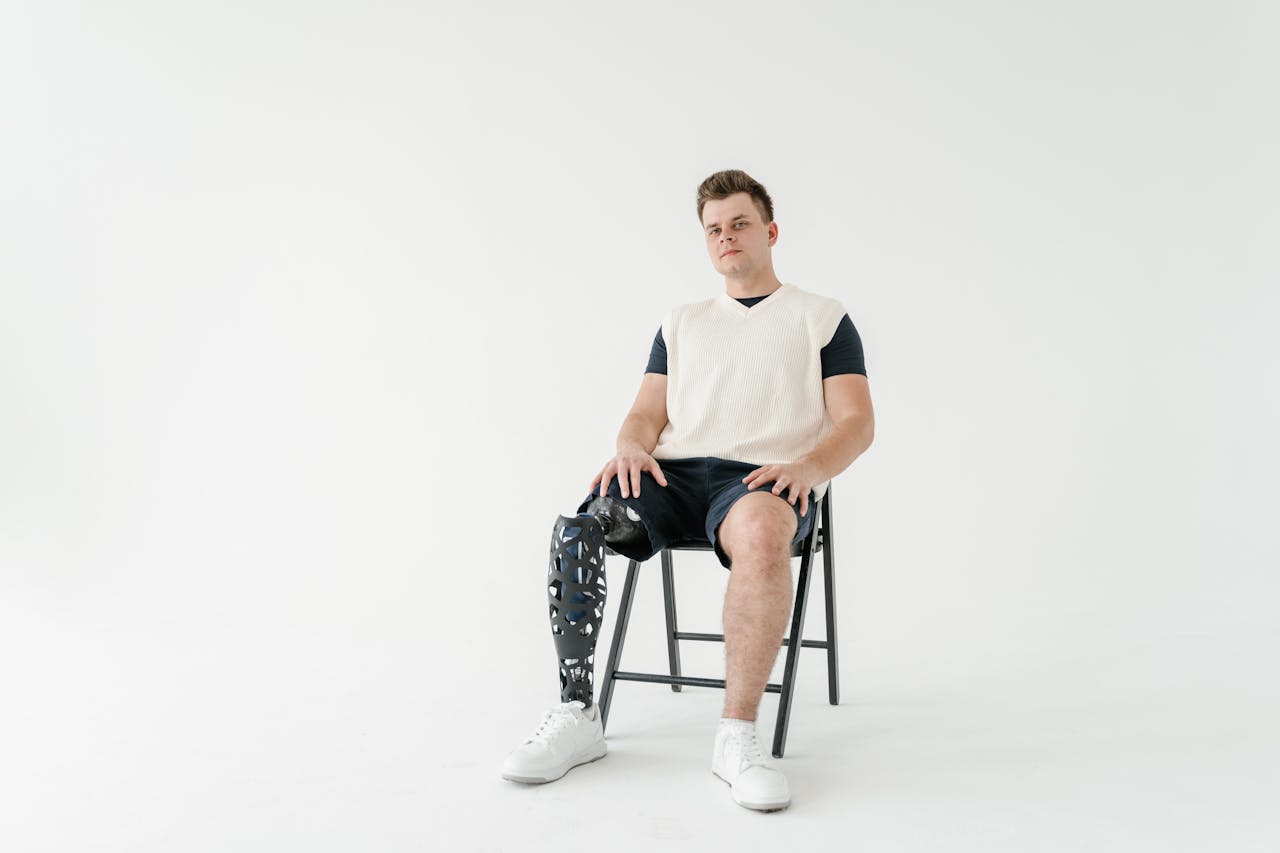Sleep Smarter to Train Harder
1. Breathe Through Your Nose at Night
Nasal breathing improves oxygen flow, reduces snoring, and helps you reach deeper stages of restorative sleep. Try gentle training during the day—or use nasal strips at night.
2. Stick to a Consistent Schedule
Go to bed and wake up at the same time—even on weekends. Consistency strengthens your circadian rhythm, which fuels recovery.
3. Create a Cool, Dark Sleep Environment
Aim for around 65°F (18°C). Use blackout curtains and keep noise to a minimum. A cool, dark bedroom is the foundation of quality sleep.
4. Cut Caffeine After 2 PM
Caffeine has a half-life of 5–6 hours. That afternoon pre-workout could still be keeping you wired at bedtime. Switch to water, decaf, or herbal tea later in the day.
5. Power Down Screens Before Bed
Blue light from phones and laptops delays melatonin production, making it harder to fall asleep. Swap scrolling for reading, journaling, or meditation 30 minutes before bed.
6. Develop a Nighttime Ritual
Signal your body it’s time to wind down. Try stretching, light yoga, a warm shower, or gratitude journaling. Small rituals reduce stress and prep your nervous system for sleep.
7. Prioritize Deep Sleep for Muscle Growth
Most muscle repair happens during deep sleep when Human Growth Hormone (HGH) spikes. The more restorative your sleep, the better your gains.
8. Watch Your Nutrition & Hydration
Heavy late-night meals and alcohol disrupt sleep cycles. Stick to lighter dinners, hydrate earlier in the day, and avoid sugary snacks close to bedtime.
9. Supplement Smartly (If Needed)
Magnesium, L-theanine, and melatonin can support better rest, especially during travel or stressful training phases. Always consult a health professional before adding supplements.
10. Use Tools That Enhance Sleep
From nasal strips and mouth tape to magnesium capsules are designed to optimize breathing, nervous system balance, and muscle relaxation.
Final Thoughts
Better sleep = better recovery = better performance. By mastering these 10 tips, you’ll not only feel more energized but also unlock new levels of strength, endurance, and focus.
👉 Pump It Up Pro Tip: Sleep is free, powerful, and available every night. Don’t waste it—make it your ultimate training partner.

Sleep: The Secret Weapon for Athletes
Want to lift heavier, recover faster, and stay mentally sharp? Prioritize your pillow time. In a world obsessed with doing more, the edge belongs to those who rest better.
So tonight, turn off the screen, breathe deeply, and let your body rebuild. Tomorrow, you’ll wake up stronger, sharper, and ready to conquer..
- Mouth Tape → encourages nasal breathing for deeper, restorative sleep.
- Nasal Strips → open airways, boost oxygen, and reduce snoring.
- Magnesium+ Capsules → support muscle relaxation, calm nerves, and natural melatonin production.
Together, they don’t just help you fall asleep—they help your body rebuild.
👉 Pump It Up Pro Tip: Sleep is free, powerful, and available every night. Don’t waste it—master it.
❓ Frequently Asked Questions (FAQ)
1. How many hours of sleep should athletes get?
Most athletes benefit from 8–10 hours of quality sleep each night to maximize muscle recovery and performance.
2. Can breathing really improve sleep?
Yes. Nasal breathing improves oxygen intake, reduces snoring, and promotes deeper restorative sleep cycles.
3. What are the best supplements for better sleep?
Magnesium, melatonin, and L-theanine are commonly used, but always consult a health professional before starting new supplements.
4. What happens if I train hard but don’t sleep enough?
Without sleep, recovery slows, hormone balance suffers, and progress plateaus. Sleep is as important as training and nutrition.
5. How can I fall asleep faster?
Try dimming lights, limiting screens, keeping your room cool and dark, and creating a consistent nighttime routine.







